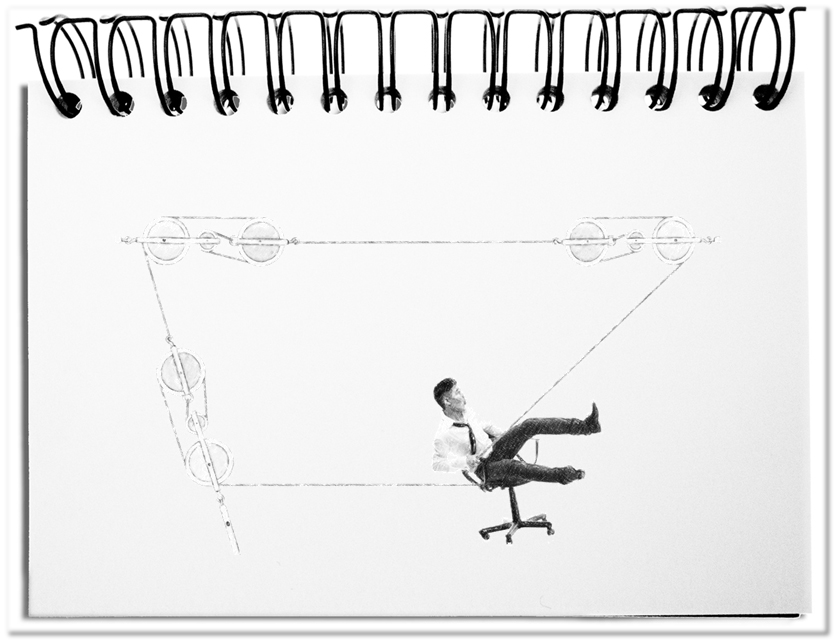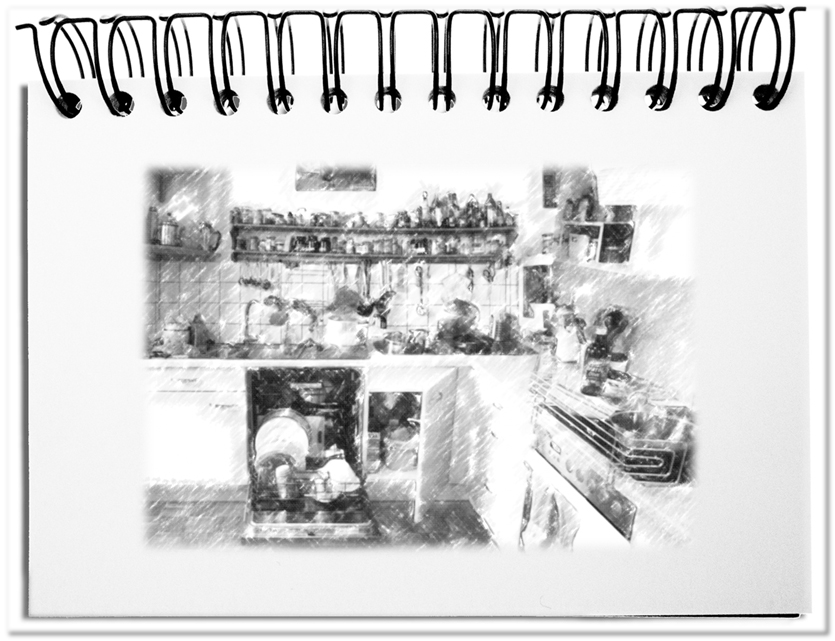The increasing complexity of tasks inevitably results in narrowing of the perspective of the acting persons. Increasing time and cost pressure prevent us from thinking outside the box. This increases the unintended consequences and burdens the desired effect. Nobody can afford to look beyond the box anymore. Good examples can be found in politics – when climate protection has to fight with nature conservation for space to install wind turbines; when the health of consumers is endangered by the extensive use of glyphosate in agriculture; when power supply lines are impeded by local residents; when traffic cannot be diverted because other disadvantages emerge; when temporary employment models and the promotion of the low-wage sector increase the risk of poverty now and in the future. The social need for further development is prevented by interests of few. That way, the parties involved are mutually depriving each other of a desirable future.
In order to secure creative leeway, the outcomes of measures must be recognized and dealt with at an early stage – whether they are intended or not or not even the direct consequence of the doing. They influence the acting persons through evolved or designed activities, the selected target groups or unforeseen third parties, i.e. everyone. The difficulties arise from a lack of foresight and awareness of the weaknesses, which are:
- The missing overview
It comes from the quality of the available data that, in the absence of current data from the future, are mainly extrapolated from the past into the future. On the other hand, the quantity and complexity of the available knowledge as well as the resulting butterfly effect make it impossible to provide reliable predictions. - The persistence of old solutions
The habit of copying old things and reusing them in a rash way leads to solutions that no longer fit the current circumstances – like the administrative tasks that continue to be paper-based. - The suppress of existing interests
The expectations of stakeholders remain unconsidered and, despite everything, influence the results – as soon as, above all, the decisive stakeholders are not involved. - The cognitive distortions of the participants
The tendency of the actors to put their own goals above those of the whole leads to distortions that burden the result – if the participants do not align to each other
In order to get the weak points under control, it needs the conscious consideration of the task. It is already enough to go through the following steps.
- To work out the initial situation with those concerned, so that everyone has a common view.
- To describe in brief the purpose, in order to convey the raison d’être to the parties involved.
- Anchoring a snapshot of the desired future with everyone so that they can act coherently on their own.
- Prepare a comprehensive proceeding that avoids pragmatically restrictive approaches with their unwanted surprises.
- Once the activities are prepared, they should be cross-checked: Are the actors known? Is the purpose described? Do the circumstances fit? Are the planned, visible actions appropriate?
- If further influences are now being carefully sought during execution, unintended consequences should occur less frequently and identified stumbling blocks should be eliminated early on.
Bottom line: Today’s way of working leads to the situation that neither the time nor the means are available to think outside the box. This means that threatening surprises remain undetected for the time being and cannot be eliminated at an early stage. In order to better manage these unintended consequences, it is advisable to address the above-mentioned aspects: clarify the facts; make the purpose tangible; formulate the vision; keep the approach flexible; check the coherence of the measures; and eventually, work through everything carefully. In addition, the requirements of modern management continue to apply – clear objectives, defined roles, fixed time and cost budgets, etc. Looking at ALL the above elements, the unintended consequences should be reduced.


